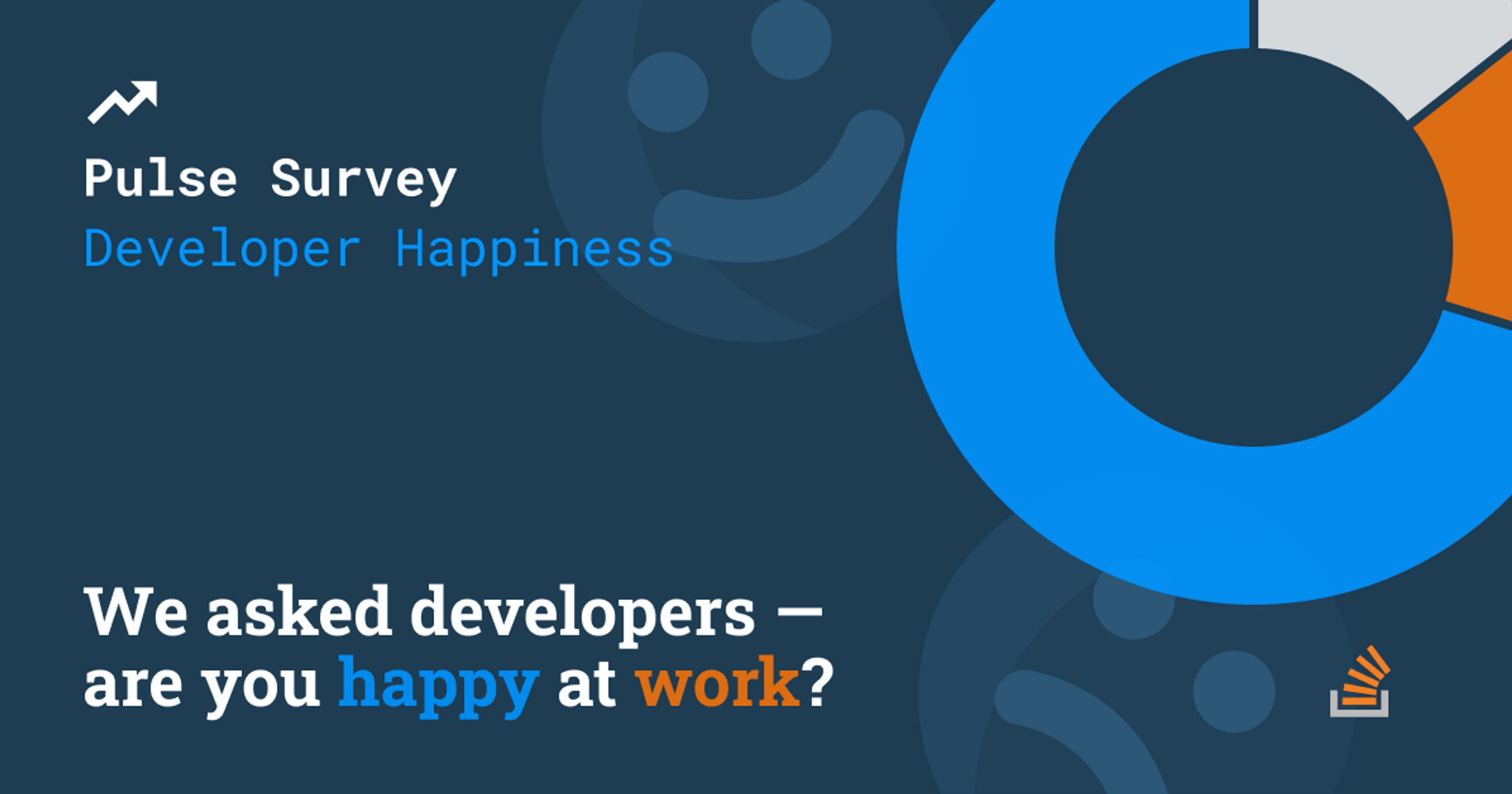One of the most striking impacts of the pandemic has been a massive reshuffling of the workforce known as the Great Resignation. Tech, in particular, has among the highest resignation rates in any industry, with a 4.5% increase in departures in 2021 compared to 2020.
What’s driving this trend? It’s certainly not a lack of demand: the last two years have seen unprecedented growth across nearly every technology-driven industry. Strapped teams compounded with the pressures of rapid growth typically translate to high-stress environments for developers. The notion that burnout is the principal driver of the resignation crisis in tech makes sense at first.
That said, we learned at the end of 2021 that nearly 80% of developers aren’t actively looking for a new job. What to make of these two contrasting data points? Maybe the answer lies not with the opportunities at other companies, but with developers’ satisfaction with their own. Are developers actually happy at work? And what makes the difference between happiness and unhappiness: salary, flexibility, intellectual challenge, or all of the above? We surveyed over 350 developers across the globe to find out.
What regions and countries have the happiest developers in the world?
Roughly 70% of working developers are happy at work right now, with over 90% saying it is important for them to be happy at work. India, the U.S., Germany, Spain, and the U.K. are the five happiest countries for developers.
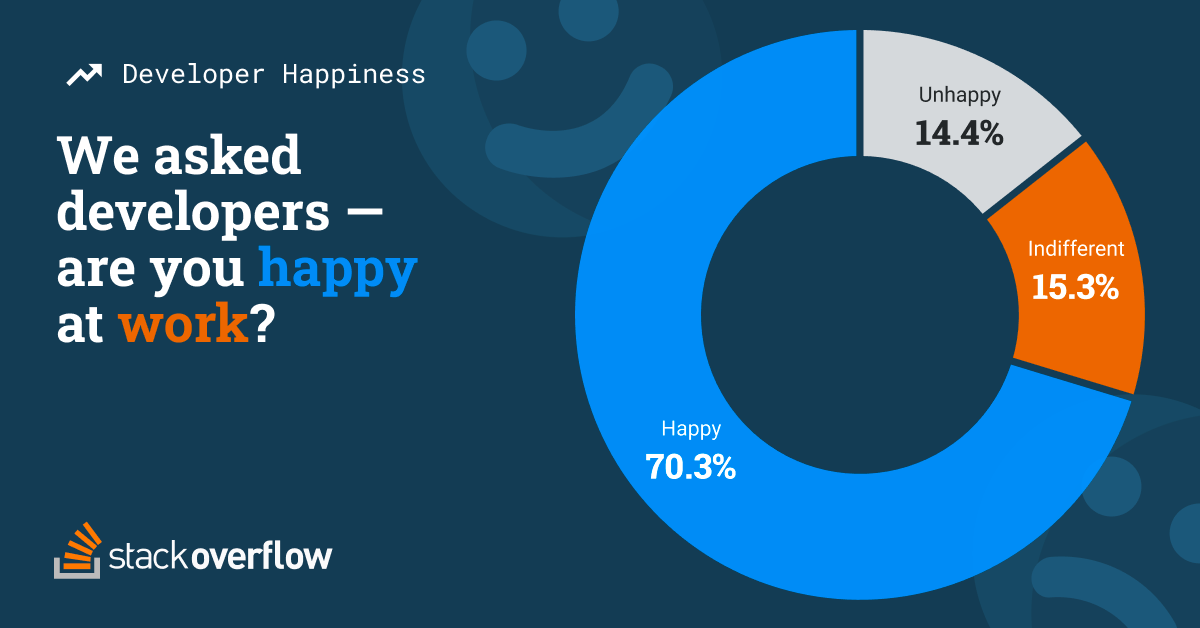
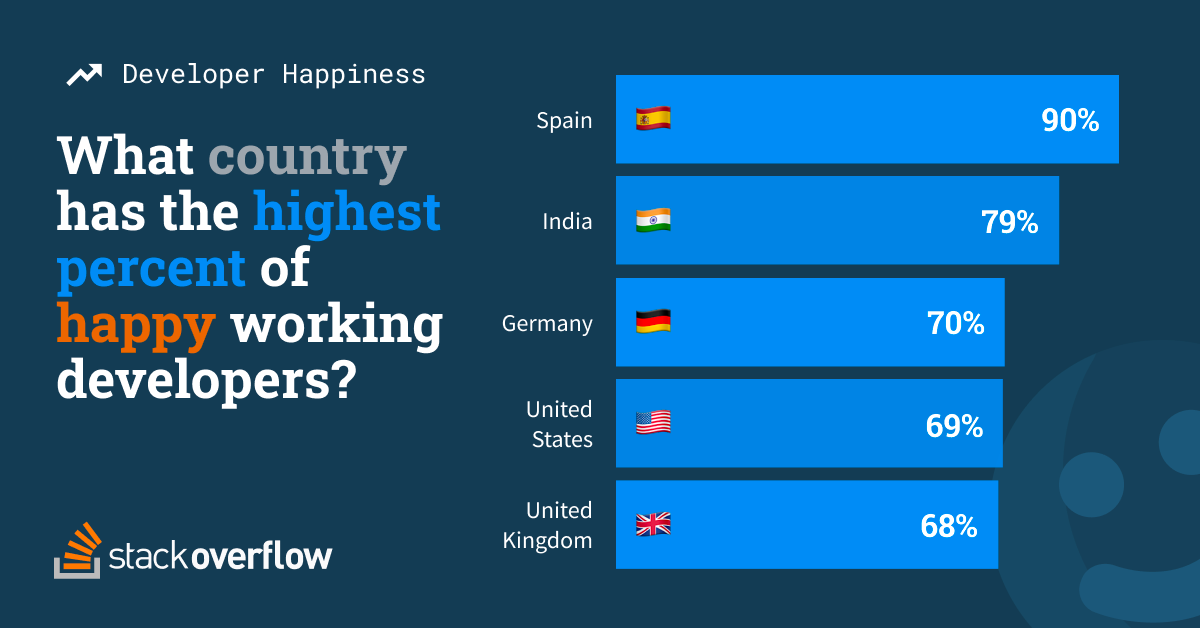
Money isn’t everything, but it helps.
When we dug deeper, we found that salary (60%), work-life balance (58%), flexibility (52%), productivity (52%), and growth opportunities (49%) were the top five reasons for developers to be happy at work. This data mirrors what other companies, like Skillsoft, have found in recent surveys.
Similarly, the inverse of these reasons were the top five reasons developers are unhappy at work: a low salary, no work-life balance, feeling unproductive at work, and the absence of growth opportunities. Feeling unproductive at work was number one (45%) among the factors that cause unhappiness—even above salary, which slipped to fourth (37%). Similar to our recent research around what developers prioritize when they look for new job opportunities, flexibility and productivity consistently reign supreme.
“Feeling productive at work plays a much more critical role in team happiness than we probably realize. It shouldn’t be as surprising as it is,” said Matt Kiernander, technical advocate here at Stack Overflow. “When I code, I don’t like disruptions in my flow state. Constantly stopping and starting makes me feel unproductive. We all want to feel like we’re making a difference, and hitting roadblocks at work just because you’re not sure where to find answers is incredibly frustrating.”
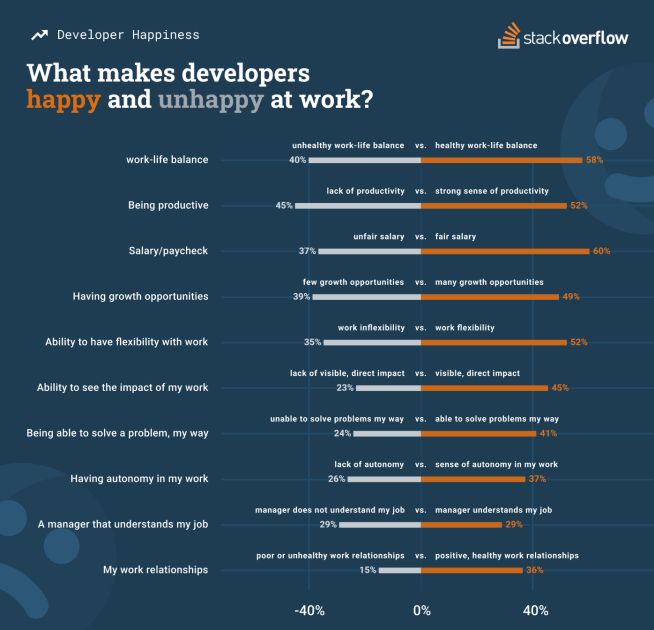
A greenhouse might be the ideal developer habitat.
In the past, we might assume the majority of developers worked from an office at least part of the time. But the pandemic has produced a massive shift to hybrid and fully remote work. With the home now becoming an office, new priorities emerge. When asked what makes for the ideal work environment, developers put windows, quiet surroundings, bright natural light, and plants at the top of the list. Just give them a chair and you’ve rounded out the top five elements of an ideal workspace. All in all, developers value flexibility. Not every work environment works for everyone in the same ways. Still, 45% developers say the ideal work environment is in their own home, while 27% say it’s in an office building. As if we needed further evidence that hybrid work was here to stay.
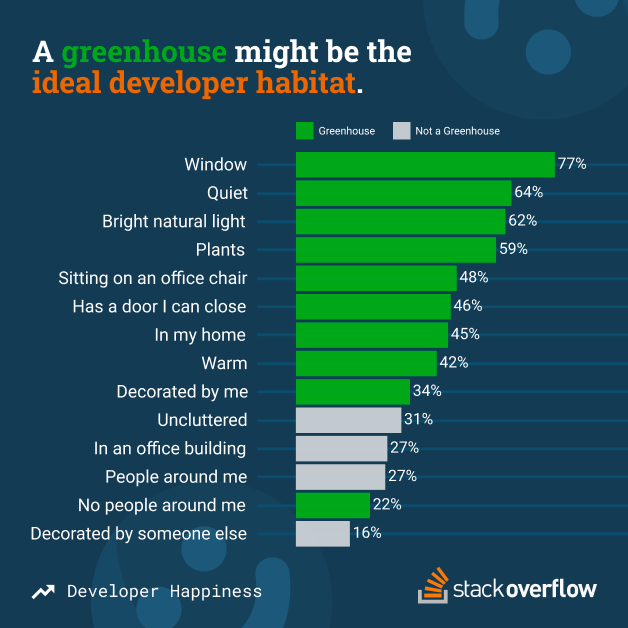
Conclusion
Are developers happy at work? About 70% of the professional developers that we surveyed say they are. Why does it seem like there is so much movement in the workplace? Well, 20% of developers looking for new opportunities add up to a lot of people on a global scale.
For managers at organizations looking to hire and retain great tech talent, the most pressing question these days is: How do you ensure your developers are among the happy ones? Money doesn’t hurt, but our research indicates leaders should prioritize flexibility, work-life balance, and productivity. The ideal work environment varies greatly from person to person, but most want to be at home… or in a greenhouse. Good news: hybrid work allows for both.
